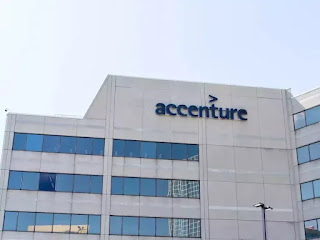Accenture • Layoff • Computers and information technology • Forecasting
Accenture has been at the forefront of technical innovation and digital transformation in recent years. Accenture, a global leader in consulting, technology, and outsourcing services, has assisted various firms in adapting to the shifting business landscape. Accenture, like many other companies, has encountered hurdles in the aftermath of the COVID-19 outbreak. The corporation has had to deal with layoffs and the impact of computers and information technology on forecasts in particular.
The COVID-19 epidemic has had a significant impact on enterprises worldwide. For many businesses, it has meant a significant drop in revenue and the need to slash costs. Accenture has not been immune to these issues, and the corporation has just announced a number of layoffs. According to sources, these layoffs are being caused in part by a drop in demand for specific services, particularly in the travel and hotel industries.
Simultaneously, the COVID-19 pandemic has emphasised the significance of computers and information technology in predicting. Companies have had to rely more heavily on data-driven insights to make educated decisions in the face of so much uncertainty and volatility in the global economy. This is especially true for firms like Accenture, which specialise in assisting other organisations in navigating complicated challenges.
One of the most important advantages of computers and information technology in forecasting is their capacity to process large amounts of data rapidly and accurately. Companies like Accenture can examine massive datasets using complex algorithms and machine learning models to uncover trends and patterns that humans may miss. This is especially beneficial when there is a lot of noise in the data or the underlying relationships between several variables are complex.
The capacity of computers and information technology to automate certain operations is another significant advantage in forecasting. Companies like Accenture, for example, can employ software to automatically gather data from various sources and do computations, freeing up analysts and other professionals to focus on higher-level work. This can assist businesses in becoming more efficient and sensitive to changing market conditions, which is especially crucial in today's fast-paced corporate world.
However, there are several drawbacks to employing computers and information technology in predicting. The risk of prejudice is one of the most serious. Algorithms and machine learning models are only as good as the data on which they are trained, and if that data is skewed in any way, the model will reflect that skewedness. This can be especially problematic when the data is insufficient or poorly understood, or when the underlying processes being modelled have a high degree of variability.
Another issue is the risk of over-reliance on technology. While computers and information technology can be extremely strong predicting tools, they are not perfect. Human judgement and knowledge are still important components of forecasting, and firms like Accenture must ensure that they are not overly reliant on technology to make decisions.
Finally, the COVID-19 pandemic has emphasised both the benefits and problems of predicting with computers and information technology. Accenture, for example, has had to negotiate a quickly changing business climate, and the capacity to analyse vast datasets and automate specific processes has been vital to their success. Yet, these same technologies carry hazards, such as bias and overreliance on technology. In order to prosper in an increasingly complicated and uncertain world, firms will need to find the correct balance between human judgement and technical innovation.



.jpeg)
Comments
Post a Comment